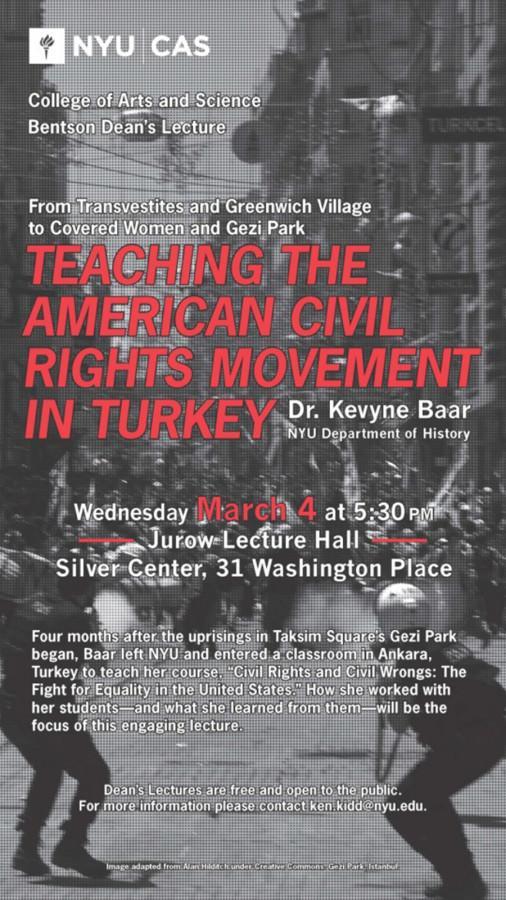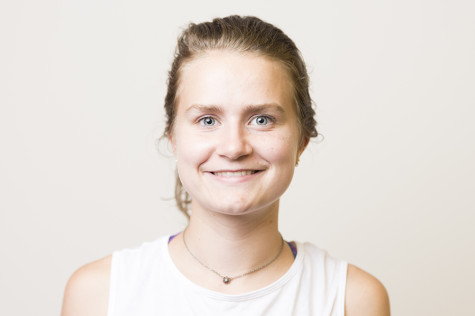Professor discusses Turkish civil rights
The NYU Department of History hosted an event in Silver discussing the aftermath of the uprising in Taksim Square’s Gezi Park.
March 5, 2015
At first it may seem like there are many differences between Turkish and American students, but CAS professor Kevyne Baar disputed this during a talk Wednesday in the Silver Center. Baar discussed the similarities between the American civil rights movement and the ongoing civil rights movements in Turkey.
Baar spent a year in Turkey teaching African American literature, focusing on all aspects of civil rights movements throughout history. She displayed a picture of her class in Turkey standing in front of a timeline that had three parallel lines.
“It became something very important to me, that nothing happens in a vacuum,” Baar said.
“I developed a timeline which basically has three movements: the African American civil rights Movement, the women’s movement, and the gay rights movement.”
The class itself was not taught in a vacuum. In Turkey, major civil rights protests had happened mere months before her class.
“I’m teaching this class four months after the riots in Gezi Park,” Baar said. “I’m going to be teaching American civil rights, which they have emulated a lot of.”
The demonstrations in Gezi Park began in May 2013, when the government wanted to add a shopping mall to the historic district of Istanbul. Soon, the demonstrations spread to 90 other sites in Turkey.
“Basically, people didn’t want this historical area torn down,” Baar said. “It was very much emulating Occupy Wall Street, initially. They put tents up and they literally went into the park. And then once the tanks and the water cannon came in and everything, and everyone went, ‘Woah. Wait a minute, these kids are quiet, they’re not hurting anybody.’ And this incredible overreaction brought everyone out into the streets.”
GLS freshman Shakeen Tsao said the similarities between the American movements and the Turkish movement were very striking.
“The parallel that she drew between the American civil rights movement and what’s going on in Turkey is really interesting,” Tsao said. “It just gives you a different perspective. I expected a professor who would talk about her experiences, but then the fact that she drew this parallel helps us have this anchor.”
In Turkey, it is not just the seemingly liberal minority, like the students in Baars class, who face discrimination. 99.8 percent of the population is Muslim, yet women who choose to cover themselves often face adversity similar to that seen in Western countries.
“Covered women: this is hugely controversial in Turkey in universities now,” Baar said. “When Atatürk founded the country, he founded it as an adamantly secular country. No head scarves at universities.”
CAS freshman Edie Freedman took Baar’s seminar on civil rights last semester and said he found new information in her lecture.
“She talked about the riots a bit, but I didn’t know that much about it,” Freedman said. “It was eye opening about what went on with that.”
A version of this article appeared in the Thursday, March 5 print edition. Email Justine Morris at [email protected].


























































































































































Arafat • Mar 6, 2015 at 8:14 am
Another “expert” telling us the “Arab Spring” (or this iteration of it) will work. Yeah, right.
When will an “expert” tell us Islam is incompatible with democracy, equal rights and individual freedoms?
Or is it too much to ask to expect common sense and a real understanding of Islam from “experts”?